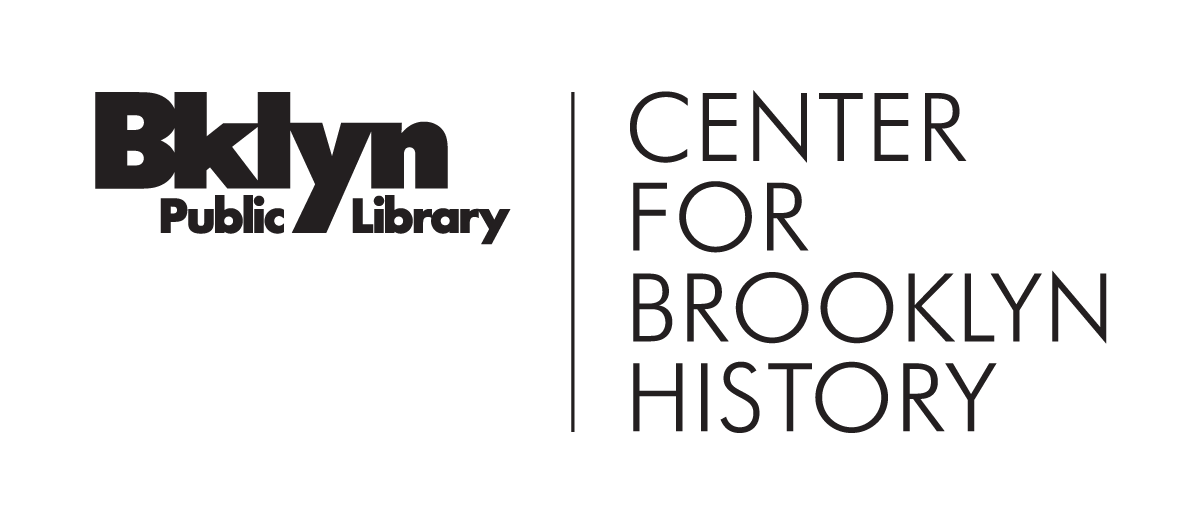CBH Talk | From the West Indies to Eastern Parkway: Caribbean Migration and Diaspora in Brooklyn
Just as the Great Migration brought waves of African-Americans from the South to the North, a parallel migration with as important an impact came from Afro-Caribbeans moving to the US from the island nations of Jamaica, the Bahamas, Trinidad and Tobego, Haiti, Cuba, the Dominican Republic, Guyana among others.
Join three experts and scholars – Fordham University’s Tyesha Maddox, Princeton University’s Joshua Guild, and Center for Brooklyn History Chief Historian Dominique Jean-Louis – as they shine a spotlight on the history of Afro-Caribbean migration to Brooklyn, and the resulting cultural influences on cuisine, music, dance, religion, clothing and more.
From the turn of the century, to World War II, to the years following the Immigration and Naturalization Act of 1965, millions of West Indian migrants settled in the US. According to census reports, as of 2019 the Caribbean diaspora in the United States comprised more than 8.5 million people. West Indian culture blends Caribbean heritage, African roots, influences from Europe, and traditions that speak to centuries of colonization, emancipation, resilience, and celebration. We’ll explore how festivals like Brooklyn’s upcoming West Indian Day Parade keep this vibrant heritage alive and honor this community and its historic roots.
Participants
Joshua Guild is Associate Professor of African American Studies at Princeton University specializing in twentieth-century African-American social and cultural history, urban history, and the making of the modern African diaspora. He received his PhD from Yale University and his BA from Wesleyan University. His research has been supported by fellowships and awards from a number of institutions, including the Andrew W. Mellon Foundation, the Ford Foundation, the Woodrow Wilson National Fellowship Foundation, Harvard University’s Charles Warren Center for Studies in American History and the Hutchins Center for African and African American Research. Guild has published essays on Shirley Chisholm, calypso music in the age of decolonization, and Black radical environmentalism. His book In the Shadows of the Metropolis: Cultural Politics and Black Communities in Postwar New York and London is forthcoming. In 2023, he co-edited a special issue of the Journal of African American History on “The Black 1980s.”
Dominique Jean-Louis, Ph.D is the Chief Historian of the Center for Brooklyn History at the Brooklyn Public Library. Previously, she held the position of Associate Curator of History Exhibitions at New-York Historical Society, where she co-curated Black Citizenship in the Age of Jim Crow (2018), Our Composite Nation: Frederick Douglass' America (2022), and is the co-curator of Black Dolls (2022). She is a former Mellon Predoctoral Fellow in Museum Education at the Museum of the City of New York, where she also contributed to the flagship exhibition New York at Its Core (2016). She received her B.A. in Comparative Ethnic Studies from Columbia University, and her Ph.D in US History from New York University, with her doctoral research focusing on race, education, and immigration in post-Civil Rights Era Brooklyn. Dominique regularly writes and lectures on Blackness in America, schools and education, and New York City history.
Tyesha Maddox is an Associate Professor at Fordham University in the Department of African & African American Studies. She received her PhD in History from New York University in 2016. She received a BA in History and Africana Studies and a MPS in Africana Studies both from Cornell University in 2006 and 2008. Her book, A Home Away from Home: Mutual Aid, Political Activism, and Caribbean American Identity (Penn Press, 2024) examines the significance of early twentieth century Anglophone Caribbean immigrant mutual aid societies and benevolent associations in New York City. In 2020, she co-edited a comprehensive resource guide and website titled "This is Not a Riot!" (www.notariot.com) to help contextualize the Black Lives Matter Uprisings of 2020 and place them in the historical radical tradition of Black protest in the US. She also serves as a key organizer for Mutual Aid NYC's Organizing Archive and Library as well as their Public History and Political Education Committee.
Her research and teaching interests include the African Diaspora, Caribbean, Black Atlantic, Women and Gender, African American History, Race, Transnational Communities, Migrational Movements, Immigration, Black Identity Formation, Social and Cultural History.









